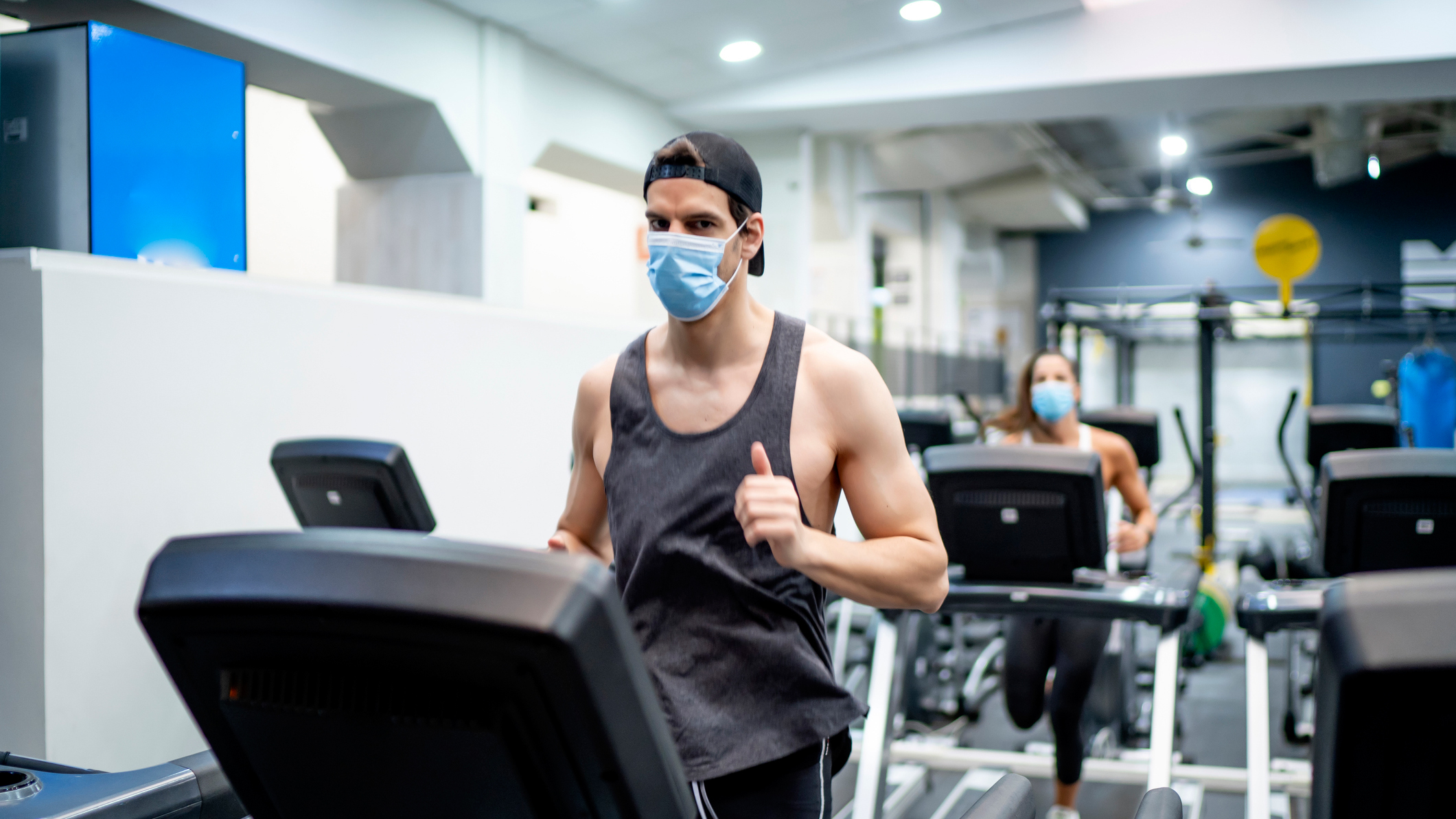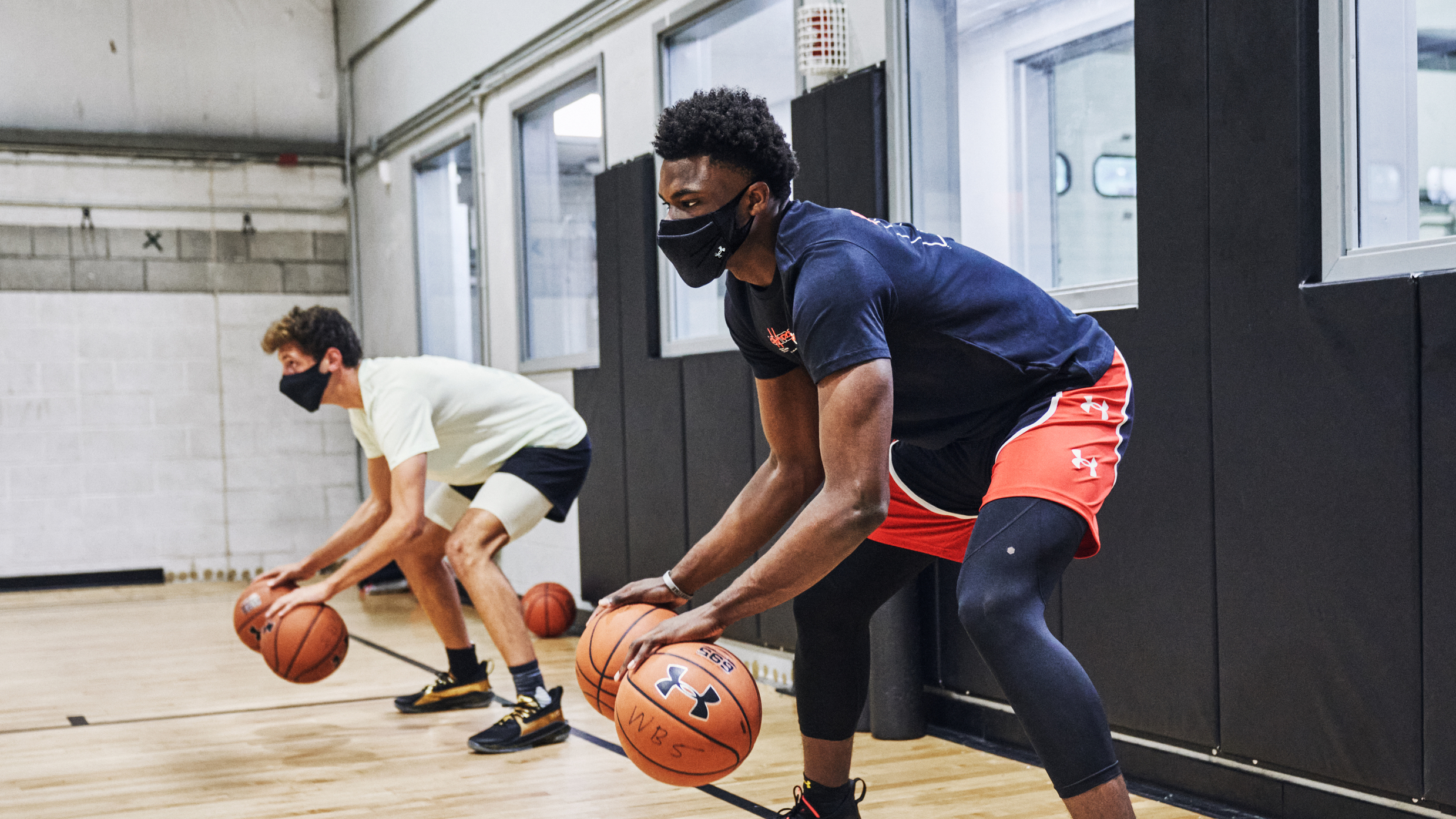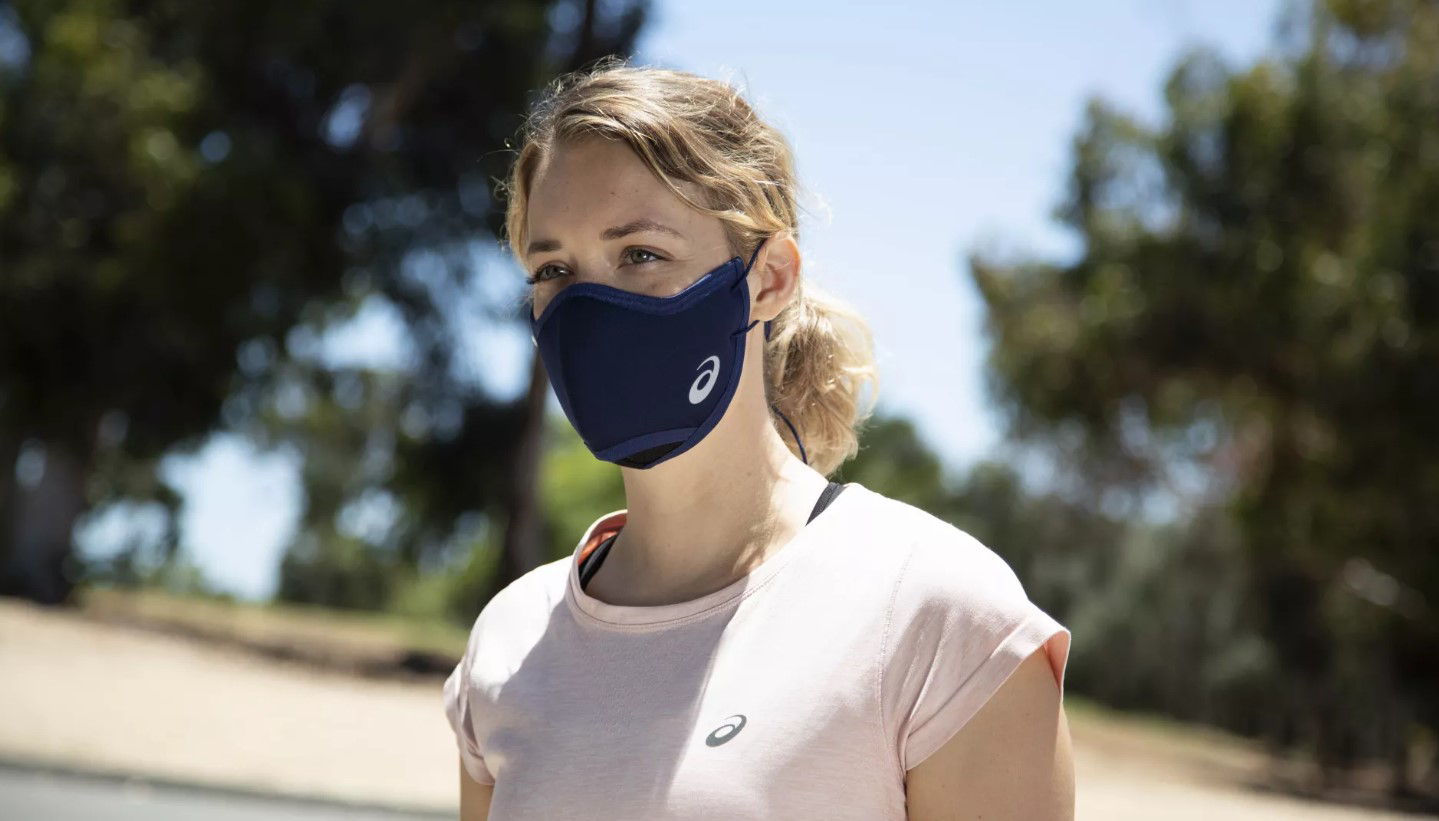Fitness: Why you can (and should) wear a face mask during exercise in winter
Face masks don't make you breathe your own CO2 during exercise. In fact, it might help you breathe even better


Start your week with achievable workout ideas, health tips and wellbeing advice in your inbox.
You are now subscribed
Your newsletter sign-up was successful
It's become very commonplace to see face masks in lots of different public places, from public transport like buses and trains to shops, restaurants and even gyms. Masks are, of course, scientifically proven to be necessary in order to limit the spread of COVID-19.
However, many people don't wear masks while exercising, because they are concerned it might restrict their breathing. This isn't always an issue if you're exercising outdoors, but in enclosed spaces like gyms and group workout classes, wearing a mask is often advised.
Fortunately, one study has found wearing a mask during strenuous exercise actually doesn't affect breathing at all. Researchers from University of Saskatchewan examined mask-wearers during exercise to determine whether masks might compromise our oxygen intake, or cause us to "re-breathe" our own carbon dioxide.
This does not seem to be the case. The study found masks worn by healthy individuals during strenuous exercise doesn't affect oxygen consumption, and carbon dioxide can pass in and out of the mask normally.
It's droplets, which is how coronavirus is spread, that land and get caught on the mask. Gases like oxygen and CO2 are unaffected.

The researchers wrote: "Our findings are of importance because they indicate that people can wear face masks during intense exercise with no detrimental effects on performance and minimal impact on blood and muscle oxygenation."
Start your week with achievable workout ideas, health tips and wellbeing advice in your inbox.
This is great news for people who want to wear specially-designed sports masks, like the ASICS Runners Face Cover and the Under Armour UA Sportsmask. These are equipped with multiple layers of protection, antibacterial and sweat-wicking technology to afford the most comfort and protection a mask can give while exercising.
In fact, now winter's on its way, wearing a mask has the potential to actually improve performance for people who exercise with breathing difficulties like asthma.

When running or exercising in cold weather, the sudden shock of cold, dry air in your lungs can cause your breathing to become restricted. This is why it's much harder to run in the cold, and why asthmatics who run very well in more temperate weather find themselves particularly restricted.
Wearing a mask over your nose and mouth warms the air slightly before it enters your lungs, so it doesn't restrict your breathing as much. If you're considering running over the course of this winter, wearing a face mask will keep you at peak performance.
Liked this?
- NEW: One easy (and free) life hack to eat less and still feel full
- PLUS: Top 10 filling foods to help stave off snacking
Matt Evans is an experienced health and fitness journalist and is currently Fitness and Wellbeing Editor at TechRadar, covering all things exercise and nutrition on Fit&Well's tech-focused sister site. Matt originally discovered exercise through martial arts: he holds a black belt in Karate and remains a keen runner, gym-goer, and infrequent yogi. His top fitness tip? Stretch.
